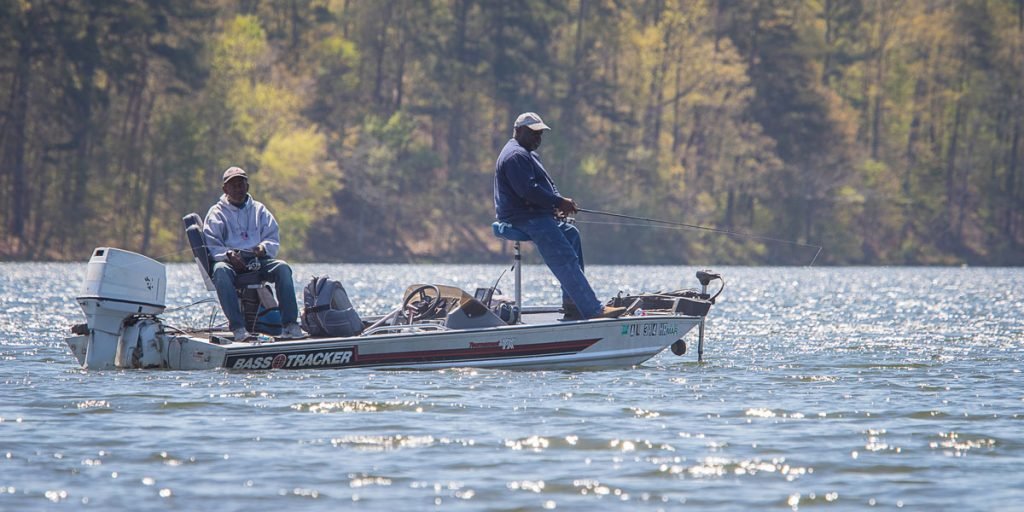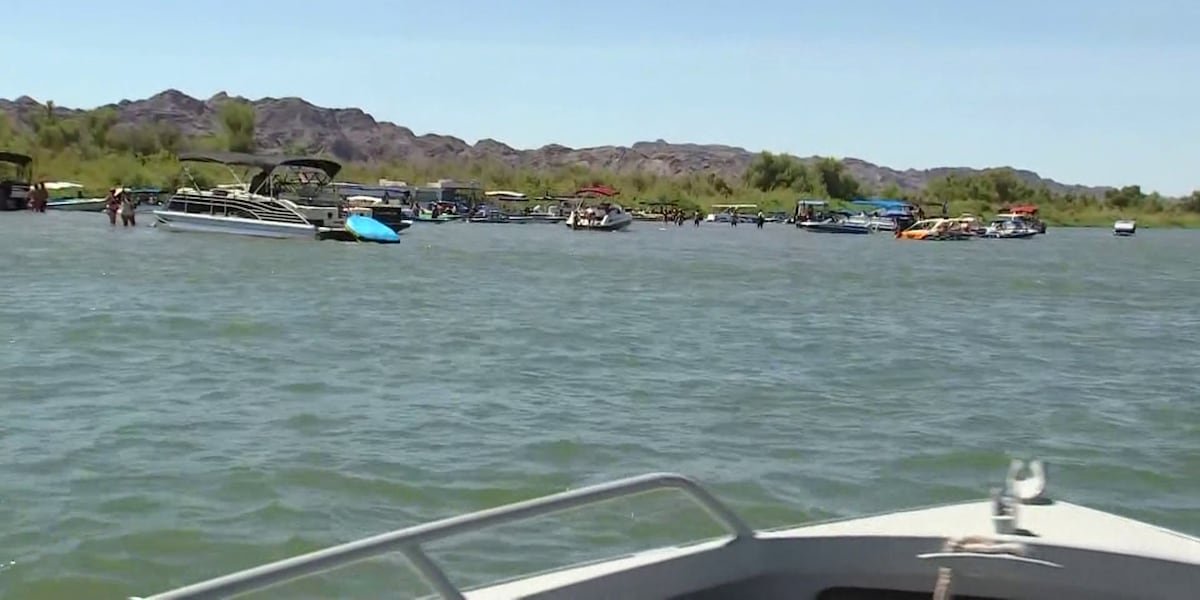If you are fishing in Alabama's coastal and/or offshore waters, the Alabama Department of Conservation and Natural Resources (ADCNR) Marine Resources Division (MRD) will begin a pilot study in 2024 to collect data on recreational fishing. Because of this, they may soon be asking for help. Efforts for Alabama's private anglers and the state's hired captains.
The Alabama survey is similar to the effort survey currently used by the Louisiana Department of Wildlife and Fisheries to estimate fishing effort by saltwater anglers. This research is being conducted in partnership between NOAA Fisheries, the Gulf States Marine Fisheries Commission, and ADCNR/MRD.
MRD contacts licensed anglers and hired captains weekly to collect fishing information from the previous week.
“Over the past few years, as we transitioned to state management of red snapper and looked at how some other species are regulated by the federal government, Alabama and several other states “We were concerned about how the federal investigation was being conducted, especially with regard to efforts; how many people are participating in the fishing industry,” said MRD Director Scott Bannon. “Between the federal survey estimates of red snapper landings and the snapper inspection estimates, we believe the snapper inspection estimates are a better representation of Alabama's catch. Most of the differences in values are due to fishing effort, and there may be a better way to estimate fishing effort.

“Florida is essentially moving to its own system, and Louisiana and Texas have their own systems. Mississippi and Alabama have introduced state data collection systems for all species. We have chosen 2024 as the pilot year for this. We will compare the federal government's numbers and the state's pilot numbers side-by-side.”
In 2018, significant changes were made to NOAA Fisheries' private recreational survey methodology. The largest of the changes was contacting individuals by email from randomly selected mailing addresses in coastal states, which resulted in significantly higher catch estimates. These higher estimates were large enough to raise concerns within the marine fisheries management community regarding the accuracy of Alabama's saltwater fishing activities.
The biggest controversy involves Alabama's signature saltwater fish, the red snapper that thrives off the coast of Alabama. Alabama has the largest artificial reef zone (www.OutdoorAlabama.com/
As many Alabama residents and offshore anglers remember, the Gulf Coast was granted state red snapper management in 2018, which included monitoring catches using the state's data collection program. was included. In addition to a slight increase in the annual catch limit (quota), the catch of red snapper has also increased since the introduction of state management. Bannon said the system worked very well. However, NOAA Fisheries argued that catch estimates from data collection programs in Mississippi, Florida, and Alabama should be adjusted to recognize the differences between federal efforts and state surveys.
As a result of the adjustment, the 2023 red snapper catch quota for individual recreational anglers in Alabama has decreased by 51%. Alabama's private recreational catch limit increased from 1,122,662 pounds in 2022 to 558,200 pounds in 2023. For the 2024 season, MRD anticipates an increase in quotas due to a calibration amendment approved by the Gulf of Mexico Fisheries Management Council (Gulf Council) in August 2023.
Bannon said NOAA Fisheries, also known as the National Marine Fisheries Service (NMFS), acknowledged that its effort data may not be as accurate as once thought.
“The National Marine Fisheries Service recently announced that private recreational vessel catches in a subsample of East Coast states were inflated by 30-40%. They have known this since 2019.” said Bannon. “They acknowledged that the data they were presenting us might not be accurate. Therefore, our goal was to develop a more accurate system to make better business decisions. It’s about being able to make decisions.”
Bannon said the inaccuracies in the federal investigation will be discussed at a future Gulf Council meeting. The Gulf Coast Council will meet from January 29 to February 1 at the Hyatt Centric French Quarter in New Orleans, then from April 8 to 11 at the Lodge at Gulf State Park in Gulf Shores.
“Alabama has been at the forefront of reef fish management for the past decade,” said Conservation Commissioner Chris Blankenship. “Through Snapper Check, we have shown that data collection at the state level is much more accurate in the red snapper fishery and more reliable for management decisions. We have been saying this for years. As such, the effort and catch estimates from the federal government's MRIP program do not reflect what we all see in our state. We acknowledge that there are potential flaws. This new state-led study is what we need to do to further remove uncertainty in fishing for snapper and other federally and state-managed species. is.”
Bannon said people receiving calls from the pilot survey would see the 985 area code and their caller ID would likely show South Central Planning, the company hired to conduct the survey. He said he wants anglers to be aware of one thing. Louisiana Survey.
“This will be a phone survey and an email survey. We want people to know about it and we want people to participate because we want to increase the accuracy and increase the Because we want to benefit people,” he said. He said.

Each week, using a current list of licensed saltwater anglers and state-licensed for-hire captains, a small number of anglers are randomly selected to ask about fishing trips ending in Alabama during the previous week. will be contacted. Anglers and hired captains will first be contacted via email. If we do not receive an email response within one day, we will contact you by phone the following week.
The survey for individual anglers is very quick and requires only 8 basic questions to answer. The results of the civilian angler survey will be sent to MRD staff by the contractor. State charter captains will be contacted by MRD staff and asked similar questions.
“Our goal is to provide reporting of fishing activity,” Bannon said. “Effort (number of fishing trips) is an essential part of the fisheries management equation.”
MRD staff is expected to be able to produce effort estimates on a weekly basis, a marked improvement over the 45-day minimum required to produce estimates within federal surveys.
Contacting using a list of licensed anglers may improve the precision and accuracy of the calculated effort estimates. As part of the pilot study, catch estimates for several target species, including sea bream, will be calculated and compared to NOAA Fisheries estimates.
“We intend to compare the pilot study estimates to the federal study estimates in 2024, but it will take until early 2025 to make a final comparison,” Bannon said. “If preliminary results show a significant difference and funding is available, we may be able to continue the pilot study in 2025.
“I encourage everyone who contacts me to get involved. As I always tell people, the more real data you put into fisheries research and evaluation, the better. We will get better answers. Better answers mean fewer assumptions. Our efforts and the cooperation of those who participate in our research will help us provide the best opportunities for participation in commercial and recreational fishing. If the pilot study replaces the federal study, it should have a positive impact on the management decisions of everyone who fishes in the Gulf of Mexico.”
David Reiner is an award-winning author who has spent 25 years covering Alabama's great outdoors.Former outdoor eddieThor in mobile press registrationhe writes for Outdoor Alabama, the Alabama Department of State website. Conservation and Natural Resources.
Do not miss it! Subscribe now Get the top Alabama headlines delivered to your inbox.
















